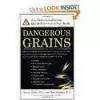-
Welcome to Celiac.com!
You have found your celiac tribe! Join us and ask questions in our forum, share your story, and connect with others.
-
Celiac.com Sponsor (A1):
Celiac.com Sponsor (A1-M):
-
Get Celiac.com Updates:Support Our Content
Fatigue, Muscle Pain Gone After Going Gluten Free?
-
Get Celiac.com Updates:Support Celiac.com:
-
Celiac.com Sponsor (A17):
Celiac.com Sponsor (A17):
Celiac.com Sponsors (A17-M):
-
Recent Activity
-
- Jmartes71 posted a topic in Post Diagnosis, Recovery & Treatment of Celiac Disease0
Nateral remedies
Im very big on nateral remedies and just read that my go to herb is a no no and was wondering if factual or fiction. I read on Google, I know don't read or take to heart, however it stated that Echinacea isn't good for those with compromise autoimmune because it can cause inflammation. Has anyone else heard of this?Ive been battling sibo so wondering if any... -
- Known1 replied to Known1's topic in Introduce Yourself / Share Stuff13
Diagnosed Marsh stage 3C in January 2026
Pardon me, I stand corrected. I did find yet another blood test for thyroid function. TSH W/REFLEX TO FT4: 2.91 mIU/L (Range: 0.40 - 4.50) As you can see, I was within the acceptable range when the test was performed. -
- Known1 replied to Jane02's topic in Gluten-Free Foods, Products, Shopping & Medications31
Desperately need a vitamin D supplement. I've reacted to most brands I've tried.
I am curious: What was your initial level at? How many daily IUs were you taking via supplements and for how long? What did your level drop to? How many daily IUs are you taking now via supplements? Regards, Known1 -
- Jmartes71 replied to Kayla S's topic in Dermatitis Herpetiformis3
Need advice for some relief!
Ive been dealing with skin issues and been told it was staph because I was employed as a bus driver during that horrid time that im still actively healing from currently years later. Biopsies they don't want to say its inconclusive they say.Their creams don't work.I do notice Yarrow Pom from Doterra works but of course thats expensive.Prayers -
- trents replied to MoniqueCham's topic in Related Issues & Disorders1
Celiac Disease, Lymphocytic colitis and Bowel rupture
Welcome to the celiac.com community @MoniqueCham! Celiac disease damages the villous lining of the small bowel but, as far as I know, doesn't affect the underlying smooth muscle tissue of the bowel.
-




Recommended Posts
Archived
This topic is now archived and is closed to further replies.